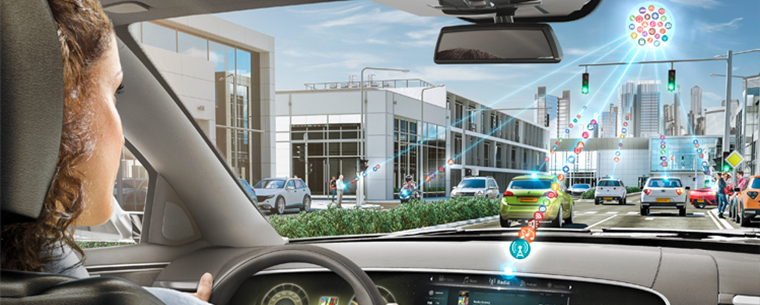The future of driving: data
Kwik Fit | Friday 7th June 2019 3:20pm

The importance of data in motorsport is obvious as many members of the teams can be seen in the garages with their headsets on. The vehicles used in motorsport are fitted with a wide range of sensors. The data captured is then used to improve vehicle performance in future races. Massive amounts of data are collected and analysed each weekend to make the cars as fast as possible.
The technology used in motorsport is also used in regular cars. Manufacturers, such as Continental, are already working on developing data technology to help improve the safety and performance of our vehicles. However, we can expect significant improvements in this technology over the years to come. Also, discovering how best this data can be used is another area where research is being carried out.
What data is used now?
Most modern vehicles feature data capture technology. From satellite navigation to tyre pressure monitoring, large amounts of data are captured from our vehicles. Sensors also monitor key elements of the car to make sure that the parts of your vehicle are functioning as efficiently as they should be.
Our car sensors can tell many things, such as cabin temperatures and even if youíre starting to become tired behind the wheel. There are also sensors such as parking sensors which help to make driving a little bit easier. These depend on live data capture and interpretation. To enable this, data needs to be processed quickly and efficiently. Technology such as 5G will help with this process.
Tyre sensors
Innovation into tyre sensors is a key area for manufacturers. An example of this is Continentalís ContiSense. This is designed to gather data on the condition of your tyres such as tread depth and tyre pressures. The technology allows electrical signals to be sent from a sensor in the tyre to a receiver in the car. This data enables the driver to have a better understanding of the condition of their tyres. The driver can then be alerted to any potential issues with their tyres earlier and then issues can be rectified more quickly.
Technological advances arenít limited to tyres. If anything goes wrong, our cars will probably know about it before we do. In some cases, when an accident occurs, the vehicle is able to send data to the emergency services regarding the incident. This gives them a better idea of what to expect before they arrive.
The future of data
In the future, it seems likely that the amount of data collected will be even greater than it is now. However, the technology to interpret this data also needs to be innovated at the same pace to make this data collection worthwhile. For autonomous and semi-autonomous vehicles, data collection is essential in ensuring that they are safe to drive. The signals that they pick up from other vehicles and their environment will help to ensure that everyone is safe on the roads.
In some modern cars, technology is already helping us to drive more efficiently. The technology will inform us when we should stop for a break and in the case of electric vehicles when we need to charge them. This data wonít only be visible on screens but also can be seen through mediums such as augmented reality.
Keeping data secure
It is essential that data is kept secure and not shared with people who shouldnít have access to it. This means that vehicles should have the appropriate technology to encrypt and protect information. However, the sharing of some data could be helpful in keeping us safe on the roads. The possibility of sharing data between vehicles on road infrastructure will help us to improve driver awareness and safety.
The way that data can be captured and harnessed in the future is an area of ongoing research and innovation. Possible data to be captured and its uses are endless. Keep an eye on our blog for information on the latest automotive innovations.
Any facts, figures and prices shown in our blog articles are correct at time of publication.
Featured Articles
Is it Illegal to Drive With One Headlight?
Saturday 19th July 2025
Wondering if itís illegal to drive with one headlight? Learn about the safety risks and penalties of illegal blown bulbs and why you should fix them promptly.
Air Con in EVs & Hybrids: Experts Answer Your Questions
Monday 30th June 2025
Does air con drain EV batteries? Can you use the air con while charging an electric car? Find out the answers to these questions & more from Kwik Fitís experts.
Why Is Your Car Making a Noise? Fixes & Tips
Friday 13th June 2025
When your car starts making unexpected noises, it can certainly be quite disconcerting; it may be nothing to worry about, but hereís what you need to know.









